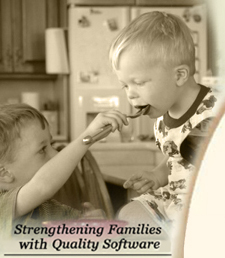
Besides reading
everything that DVO has to offer in the way of information, recipes, and specials, I also read and research a lot of other sites that have to do with food. One of my new favorites is The Daily Green (
www.DailyGreen.com). This site is all about living green, giving the reader valuable information in green-living, in baby-steps, which I need.

I recently came upon a couple of articles that dealt with pesticides in our food. It is interesting that these articles preceded some of the latest scientific studies which are linking pesticides to ADHD in children. While I am by no means a scientist, it stands to reason that the more “home-grown” our food is, the healthier it would be. Hence, a good idea to have our own gardens! But that is another article for another time.
Most of us have no idea what pesticides are used to bring us the fruits and veggies we love, and which we know we need to maintain optimum health. The Environmental Working Group (EWG) has been researching and publishing guides to the “dirty dozen” since 1995. The Dirty Dozen are foods that are the most pesticide contaminated and “reflect measurable pesticide residues on the parts of the foods normally consumed; after being washed and peeled”.
Their findings are based on statistical analysis of testing that is conducted by the USDA and the FDA. The EWG suggests buying organic, either from a health food store, your own market, or farmer’s market, when purchasing these specific foods.
Below is a partial list of the most contaminated foods which, as of 2010, have been tested. For a full report, visit
The Daily Green site:
Buy Organic if Possible
 Milk:
Milk: 12 different pesticides found, which raises a concern due to the mass consumption of this product by children. Drink organic if possible, where cows are fed grains that are grown without pesticides and growth hormones.
 Coffee:
Coffee: Most coffee beans are grown in countries where there are no agricultural regulations. Look for USDA organic and, for extra brownie points, Fair Trade certified. Fair Trade means that the farmers are treated well and given a fair wage for their back-breaking work to bring you your latte!
 Celery:
Celery: Rated #1 in 2010 for 64 pesticides detected on the celery residue.
 Peaches:
Peaches: #1 in 2009 and now #2 in 2010 for pesticide containment. Better to eat watermelon, oranges or grapefruit if you can’t buy organic. Remember that the skin is so soft that even peeling the peach will not reduce much of the pesticides.
 Strawberries:
Strawberries: #3 in 2010 with 59 pesticides found. Eat kiwi or pineapple.
 Apples:
Apples: Again, even peeling doesn’t eliminate the chemical residue completely. Buy organic or eat a banana, kiwi, pineapple, watermelon, orange.
 Blueberries:
Blueberries: Full of antioxidants, and so very good for you — if you get them organic!
Other vegetables to consider buying organic due to the pesticide issue:
Bell peppers, spinach, kale, cherries, potatoes and carrots



